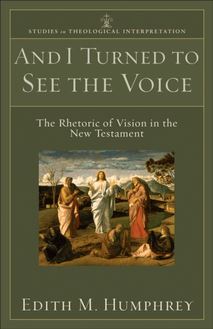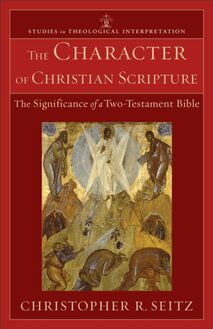-
 Univers
Univers
-
 Ebooks
Ebooks
-
 Livres audio
Livres audio
-
 Presse
Presse
-
 Podcasts
Podcasts
-
 BD
BD
-
 Documents
Documents
-
- Cours
- Révisions
- Ressources pédagogiques
- Sciences de l’éducation
- Manuels scolaires
- Langues
- Travaux de classe
- Annales de BEP
- Etudes supérieures
- Maternelle et primaire
- Fiches de lecture
- Orientation scolaire
- Méthodologie
- Corrigés de devoir
- Annales d’examens et concours
- Annales du bac
- Annales du brevet
- Rapports de stage
La lecture à portée de main
Vous pourrez modifier la taille du texte de cet ouvrage
Découvre YouScribe en t'inscrivant gratuitement
Je m'inscrisCharacter of Christian Scripture (Studies in Theological Interpretation) , livre ebook
Découvre YouScribe en t'inscrivant gratuitement
Je m'inscrisEn savoir plus
Vous pourrez modifier la taille du texte de cet ouvrage
En savoir plus

Description
Sujets
Informations
| Publié par | Baker Publishing Group |
| Date de parution | 01 octobre 2011 |
| Nombre de lectures | 0 |
| EAN13 | 9781441234605 |
| Langue | English |
Informations légales : prix de location à la page 0,0691€. Cette information est donnée uniquement à titre indicatif conformément à la législation en vigueur.
Extrait
Series Editors
Craig G. Bartholomew Redeemer University College
Joel B. Green Fuller Theological Seminary
Christopher R. Seitz Wycliffe College, University of Toronto
Editorial Advisory Board
Gary Anderson University of Notre Dame
Markus Bockmuehl University of Oxford
Richard Hays Duke University Divinity School
Christine Pohl Asbury Theological Seminary
Eleonore Stump Saint Louis University
Anthony Thiselton University of Nottingham University of Chester
Marianne Meye Thompson Fuller Theological Seminary
Kevin Vanhoozer Wheaton College Graduate School
John Webster University of Aberdeen
Jim Kinney Baker Academic
Start Reading
© 2011 by Christopher R. Seitz
Published by Baker Academic
a division of Baker Publishing Group
P.O. Box 6287, Grand Rapids, MI 49516-6287
www.bakeracademic.com
Ebook edition created 2011
All rights reserved. No part of this publication may be reproduced, stored in a retrieval system, or transmitted in any form or by any means for example, electronic, photocopy, recording without the prior written permission of the publisher. The only exception is brief quotations in printed reviews.
ISBN 978-1-4412-3460-5
Library of Congress Cataloging-in-Publication Data is on file at the Library of Congress, Washington, DC.
Unless otherwise indicated, Scripture quotations are from the Holy Bible, New International Version®. NIV®. Copyright © 1973, 1978, 1984, 2011 by Biblica, Inc.™ Used by permission of Zondervan. All rights reserved worldwide. www.zondervan.com
Scripture quotations labeled NRSV are from the New Revised Standard Version, copyright © 1989, by the Division of Christian Education of the National Council of the Churches of Christ in the United States of America. Used by permission. All rights reserved.
For the students in the Scripture and Theology seminar at the University of St. Andrews, 1998–2007
Contents
Cover
Series
Title Page
Copyright Page
Dedication
Series Preface
Preface
Abbreviations
Introduction
1. The Canonical Approach and Theological Interpretation
2. Biblical Theology and Identification with Christian Scripture : “We Are Not Prophets or Apostles”
3. An Illustration of the Challenge : The Letter to the Hebrews, Biblical Theology, and Identification
4. Theological Use of the Old Testament : Recent New Testament Scholarship and the Psalms as Christian Scripture
5. Old and New in Canonical Interpretation
6. “Be Ye Sure That the Lord He Is God” Crisis in Interpretation and the Two-Testament Voice of Christian Scripture
7. The Rule of Faith, Hermeneutics, and the Character of Christian Scripture
Epilogue
Subject Index
Author Index
Scripture Index
Notes
Series Preface
A s a discipline, formal biblical studies is in a period of reassessment and upheaval. Concern with historical origins and the development of the biblical materials has in many places been replaced by an emphasis on the reader and the meanings supplied by present contexts and communities. The Studies in Theological Interpretation series seeks to appreciate the constructive theological contribution made by Scripture when it is read in its canonical richness. Of necessity, this includes historical evaluation while remaining open to renewed inquiry into what is meant by history and historical study in relation to Christian Scripture. This also means that the history of the reception of biblical texts a discipline frequently neglected or rejected altogether will receive fresh attention and respect. In sum, the series is dedicated to the pursuit of constructive theological interpretation of the church’s inheritance of prophets and apostles in a manner that is open to reconnection with the long history of theological reading in the church. The primary emphasis is on the constructive theological contribution of the biblical texts themselves.
New commentary series have sprung up to address these and similar concerns. It is important to complement this development with brief, focused, and closely argued studies that evaluate the hermeneutical, historical, and theological dimensions of scriptural reading and interpretation for our times. In the light of shifting and often divergent methodologies, the series encourages studies in theological interpretation that model clear and consistent methods in the pursuit of theologically engaging readings.
An earlier day saw the publication of a series of short monographs and compact treatments in the area of biblical theology that went by the name Studies in Biblical Theology. The length and focus of the contributions were salutary features and worthy of emulation. Today, however, we find no consensus regarding the nature of biblical theology, and this is a good reason to explore anew what competent theological reflection on Christian Scripture might look like in our day. To this end, the present series, Studies in Theological Interpretation , is dedicated.
Preface
I began what is the second part of this project while on leave at the Center of Theological Inquiry, and it has taken some time to get my own thinking clarified on the topic being addressed: How does the Old Testament (OT) extend its horizon beyond and in conjunction with the New Testament (NT), as Christian Scripture and not as background literature for the NT or as a resourceful document to be cited for a discrete subject? I had previously worked on a long essay on the canonical approach associated with Brevard Childs of Yale and had at the time a view to expanding it, such as it presently appears in this book. The death of Professor Childs and the appearance of his final work, on the Pauline Letter collection, urged me to work through the older essay and amplify and sharpen certain points made there. The result is the present work, which I have titled The Character of Christian Scripture . I have endeavored to think through the implications of a two-testament Bible, which is neither a single long story, nor a two-part play, but a genre with its own unique character. Because there is at present much interest on the part of NT specialists in bringing precision to the hermeneutical implications of the use of the OT by NT authors, it seems timely to ask what effect such studies have on the OT as Christian Scripture per se .
I have also been made aware, through teaching on the early church’s use of the OT, that the kind of theological use of the OT these early interpreters undertook had a genuine freshness that was more than replication of the NT authors’ own practices, much less a studied account of how such practices might be explained and imitated. The centrality of Proverbs 8:22–31 is a case in point; it is probably the most important text for early trinitarian reflection and one of the most worked-over texts in early Christian exegesis, and yet its centrality cannot be explained, nor is warranted, by its use in the NT. It takes on a life of its own, in the light of Christ, and it is but one example of many.
I want to thank the Center of Theological Inquiry for the opportunity to think through the project and begin the writing phase. In the course of the past years I have moved from the University of St. Andrews to the University of Toronto, where I am Research Professor of Biblical Interpretation at Wycliffe College. I was also asked to give public lectures at Golden Gate Baptist Seminary, Acadia Divinity School, Concordia Seminary in St. Louis, and Concordia Seminary in Ft. Wayne. These lectures forced me to deal with the helpful reactions and responses of students and faculty and to think through the implications of several of the chapters. I also completed a small monograph on the canon that was scheduled ahead of this project. So the present book has taken more time to complete than I first planned.
At St. Andrews I was very fortunate to be able to conduct a seminar on theological exegesis and the history of biblical interpretation, which ran for several years. Of incomparable value was the presence of Dr. Mark Elliott, who helped organize the seminars in the latter years. He is a church historian, biblical theologian, and careful reader of texts, and the seminars were very helpful especially in the use of the Bible in the early church. I am thankful to have had Mark’s companionship intellectually and personally and have learned much from him. I have also been researching a volume on Theodore of Mopsuestia and Antiochene exegesis and have benefitted enormously from a close reading of this “school,” especially in Psalms and the Minor Prophets.
It is not possible to name all those who have read through the chapters and responded, but I would like to mention Russell Reno, Markus Bockmuehl, Kavin Rowe, Ephraim Radner, Gary Anderson, Mark Elliott, Nathan MacDonald, Joel Green, and Walter Moberly. I am particularly indebted to former students Mark Gignilliat and especially Don Collett for their feedback. Jim Kinney at Baker Academic has been a patient, wise, and kind editor, as is his custom. Robert Kashow assisted with the preparation of the typescript, and I mention his work with gratitude. Finally, a version of chapter 1 first appeared in Craig Bartholomew et al., eds., Canon and Biblical Interpretation , Scripture and Hermeneutics Series 7 (Grand Rapids: Zondervan, 2006), 58–110.
The Bible has a character. I was struck by this point when rereading the long essay by Hans Frei on the genre of the Gospels (which appeared in print as The Identity of Jesus Christ ) and teaching through the book with students at St. Andrews. Frei struggled to describe the achievement of the Gospel form, chiefly through attention to general hermeneutics and literary theory. It was an experimental book, in my view.
In this book I have endeavored to wrestle with the form of the two-testament Bible and to understand its unique character. There is nothing else like it. One usually speaks in this way about its subject matter God in Christ Jesus and rightly so. But one can
-
 Univers
Univers
-
 Ebooks
Ebooks
-
 Livres audio
Livres audio
-
 Presse
Presse
-
 Podcasts
Podcasts
-
 BD
BD
-
 Documents
Documents
-
Jeunesse
-
Littérature
-
Ressources professionnelles
-
Santé et bien-être
-
Savoirs
-
Education
-
Loisirs et hobbies
-
Art, musique et cinéma
-
Actualité et débat de société
-
Jeunesse
-
Littérature
-
Ressources professionnelles
-
Santé et bien-être
-
Savoirs
-
Education
-
Loisirs et hobbies
-
Art, musique et cinéma
-
Actualité et débat de société
-
Actualités
-
Lifestyle
-
Presse jeunesse
-
Presse professionnelle
-
Pratique
-
Presse sportive
-
Presse internationale
-
Culture & Médias
-
Action et Aventures
-
Science-fiction et Fantasy
-
Société
-
Jeunesse
-
Littérature
-
Ressources professionnelles
-
Santé et bien-être
-
Savoirs
-
Education
-
Loisirs et hobbies
-
Art, musique et cinéma
-
Actualité et débat de société
- Cours
- Révisions
- Ressources pédagogiques
- Sciences de l’éducation
- Manuels scolaires
- Langues
- Travaux de classe
- Annales de BEP
- Etudes supérieures
- Maternelle et primaire
- Fiches de lecture
- Orientation scolaire
- Méthodologie
- Corrigés de devoir
- Annales d’examens et concours
- Annales du bac
- Annales du brevet
- Rapports de stage












